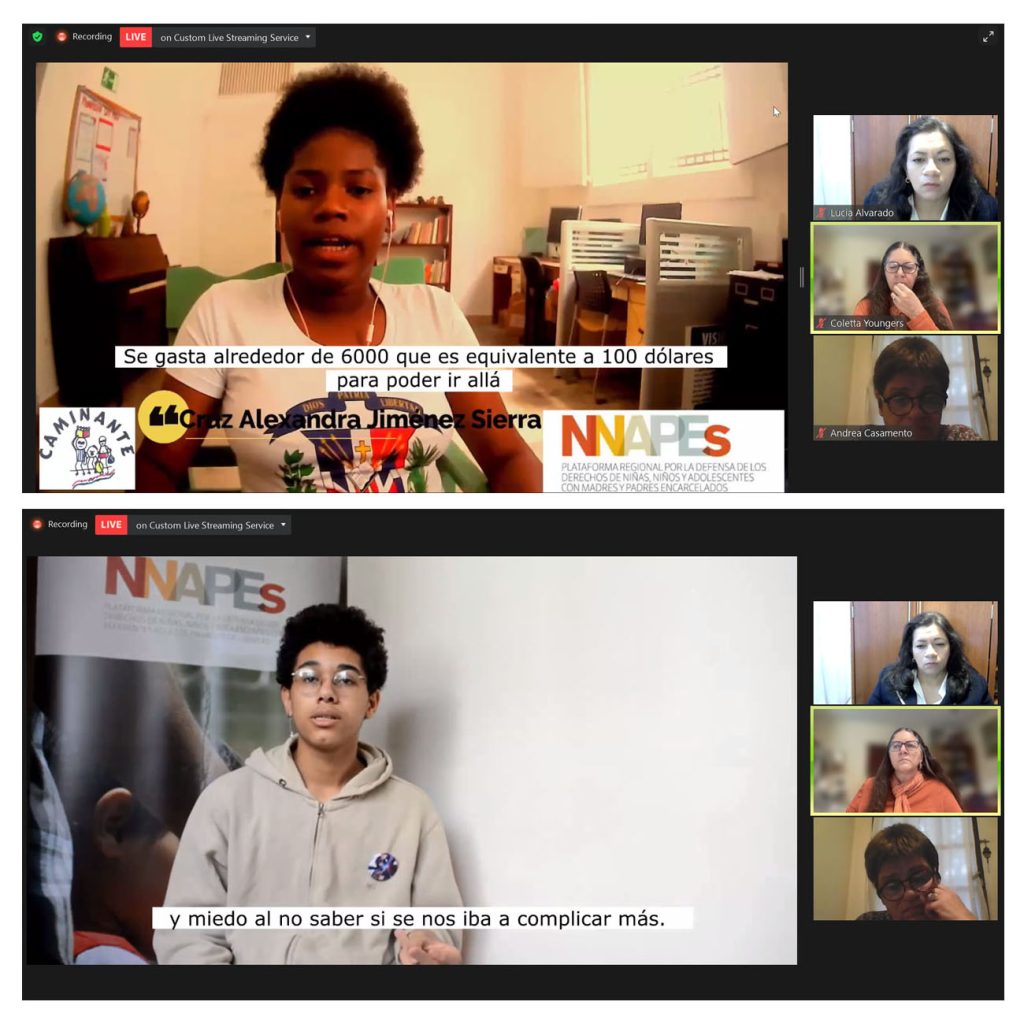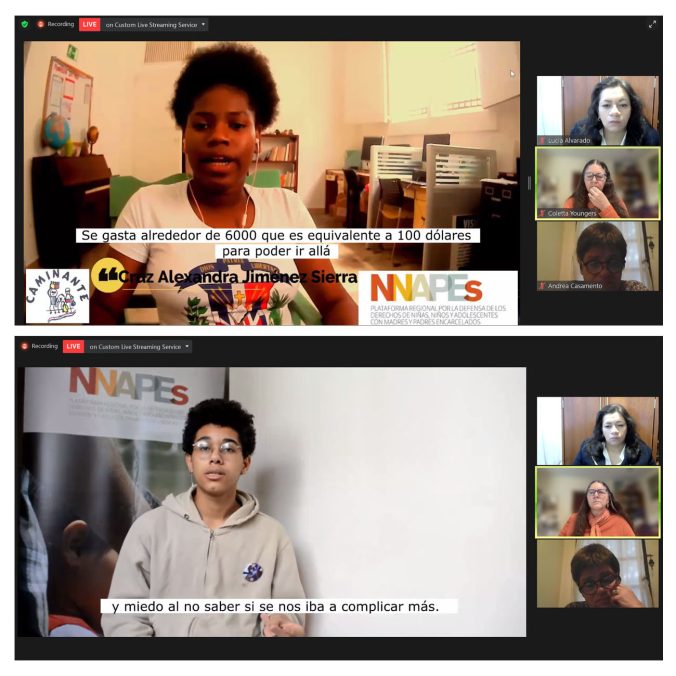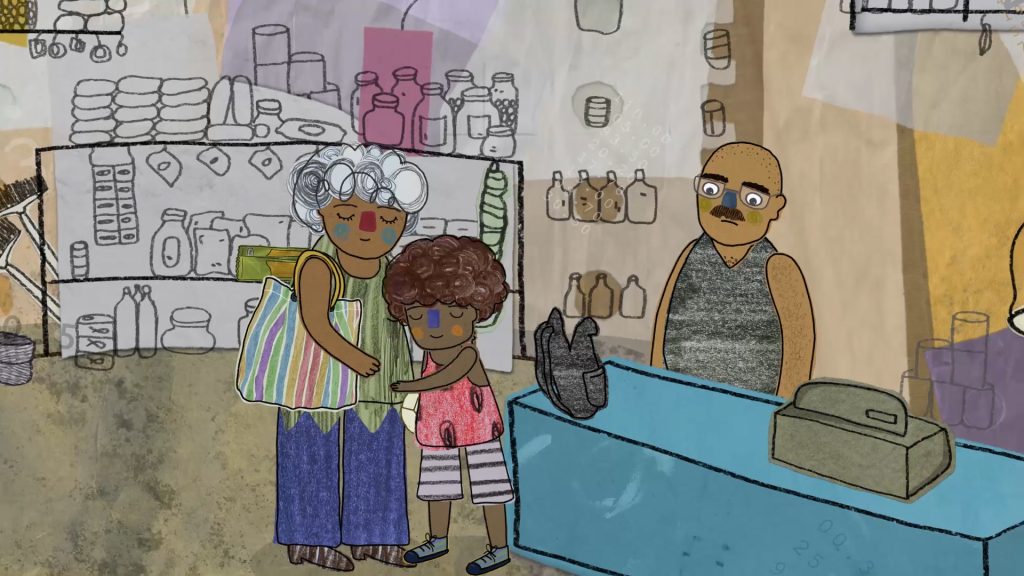
On behalf of the NNAPES Platform, adolescents Cruz Jiménez (Proyecto Caminante, Dominican Republic) and Manuel Fleitas (Gurises Unidos, Uruguay) participated in the forum Suffering in the Shadows: The Impact of Drug Imprisonment on Family Members .
The event was organized by the Washington Office on Latin America (WOLA), with the collaboration of ChurchWorld Service, the International Drug Policy Consortium, RIMUF, the Ministry of Foreign Affairs of Mexico and our NNAPES Platform.
The adolescents gave their testimonies about the change generated in their lives and in the lives of their family, having an adult reference deprived of liberty.
Cruz made recommendations to improve Dominican prisons, while Manuel told about the process to obtain his mother’s house arrest. This sentence marked an unprecedented event for Uruguayan jurisprudence and was possible thanks to the advocacy work of civil society together with the protection of the country’s social policies.
At present, the deprivation of liberty for crimes of micro-trafficking particularly affects women and their children, deepening the situation of vulnerability in which they already found themselves.
“Prison always transcends the family and those outside have to take charge. You have to work double to provide food to the person who is imprisoned, you have to have time to go to court and also how we accompany our children in this matter”, said Andrea Casamento, member of the Subcommittee for the Prevention of Torture of Nations United States, and also, director of ACIFAD and member of RIMUF.
Lucía Alvarado from CAIFAM (Mexico), also a member of the Red de Mujeres Familiares, expressed that the costs are high, since the families have to bring everything they need so that the relatives deprived of their liberty survive, in addition, they they experience situations of vulnerability when they are checked by prison staff. “Most of us are women, we are stigmatized and discriminated against, both by custody personnel and in the courts,” she remarked.
Along the same lines, Cruz commented that he would like prisons to improve, and that there would be metal and substance detectors so that no one has to go through the screening experience. The adolescent also made recommendations on the raids and the moment of detention of the relatives.
Regarding these issues, Casamento commented that being part of the Subcommittee for the Prevention of Torture has allowed him to introduce aspects that the body itself was not contemplating: “I tell them, ‘do you talk to the relatives in line?’ ‘Oh, we hadn’t met noticed’. The collateral effects of the penalty are beginning to enter international organizations. We have to take the voices to these organisms so that these problems are known”.
For his part, Manuel told about the process to obtain house arrest for his mother, in which the Best Interest of the Child was highlighted. “The separation was not only possible with my mother, but also with my brothers, since we did not know where we could end up,” Manuel said.
Regarding the house sentence, Colleta Youngers, Principal Advisor of WOLA, commented that “it can also be very limiting, since there are difficulties that women find themselves if they cannot carry out activities to support the family, if they cannot work, they it makes it difficult for them to be a mother” and urged to think beyond home measures.




